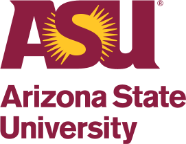New ASU program with top Mexican universities provides students more affordable options to finish degree
Spanish-speaking students in Arizona and across the United States will now have access to more affordable options to complete their degree through a new credit transfer partnership between ASU and four of Mexico’s top universities.
“Acceso ASU” creates a transfer pathway for students to take classes with four of Mexico’s leading universities—Universidad de Guadalajara (UdeG), Universidad Tecnológica de México (UNITEC), Universidad Tecmilenio and Tecnológico de Monterrey (ITESM)—and transfer those credits to ASU to complete their degree.
ASU President Michael M. Crow said: “Acceso will enable more educational opportunities for DREAMers, and other Spanish proficient students, helping to strengthen the economic competitiveness of the U.S. and Mexico.”
The new program is another example of ASU’s efforts to scale educational access to all qualified students, including to sectors of the population that often have limited opportunities due to the fact that federal and state financial aid is unavailable to them.
Crow presented the concept to Mexico’s Ministry of Foreign Affairs leaders, said Paola Garcia Hidalgo, ASU’s director of Mexico and Latin American Initiatives, who also participated in the presentation. The concept was well-received.
“We see emerging a strong sense of regional belonging, a budding ‘North-Americanism,’ where fellow Mexicans are as proud of their Mexican roots and heritage as they are of their contribution to U.S. life and prosperity,” said Jesús Seade, Mexico’s Undersecretary for North America. “The Acceso ASU Program helps develop Mexican and Mexican-American students’ full potential, increasing their opportunities to contribute to both countries as our lifelong ambassadors of mutual friendship.”
Acceso ASU is an alternative to scholarships for students to save tuition dollars by taking online courses with the Mexican university partners for significantly less cost, and have credits verified and validated for both online and campus immersive programs, Hidalgo said.
“Together, ASU and our partners offer nearly 1,000 course equivalencies, which have been already evaluated and deemed eligible to transfer to an ASU undergraduate program,” she said.
Students can enroll with any of these university partners before coming to ASU or take online courses simultaneously while enrolled at ASU.
“Once courses are successfully completed, students can request credit verification through processes that ASU’s International Admissions Office conducts,” said Kathleen Dixon, associate director of ASU International Recruitment.
Those enrolled at a participating Mexican university before coming to ASU will need to apply for admission to ASU first, Dixon said. If admitted, ASU will evaluate any college course previously taken to transfer it to an ASU degree. In addition to the courses already evaluated to launch Acceso ASU, available at the program’s website, other courses may qualify for transfer.
Students enrolled at ASU who take online courses with one of the partner universities will need to translate their Mexico transcript into English upon course completion and work with ASU International Admissions for credit verification and validation.
The cost savings are significant. The tuition rate for undergraduate non-resident Arizona high school graduate is just over $3,400 for a three-credit hour, campus immersive course. The rate for that same course for an ASU international student is around $3,900. The tuition cost for a three-credit ASU online course ranges from $1,590 to $2,184. An equivalent course taken with one of the Mexico partner schools ranges between $138 and $378 approximately.
ASU and its Mexican partners launch Acceso ASU with an initial catalogue of 978 already evaluated, transferable courses that are part of 25 undergraduate degrees. Future plans include increasing the number of undergraduate evaluated courses, add graduate courses and invite more Mexican university partners to increase academic offerings.
ASU has a history of collaboration with all of the initial university-partners—UdeG, UNITEC, Universidad Tecmilenio, and ITESM.
UdeG is the second largest public Mexican university in Mexico. It serves more than 280,200 students. Based in the State of Jalisco, UdeG’s Virtual University offers undergraduate and graduate online programs.
“Universidad de Guadalajara is proud to be a partner of ASU and join President Michael Crow in offering DREAMers and other Spanish speakers affordable, high quality options for their education through this innovative Acceso program, that combines the strengths of our universities, in favor of education, improved quality of life, and economic growth for our nations,” said Rector General Ricardo Villanueva-Lomelí.
UNITEC is a private university in Mexico City and five other states, and is part of Laureate Education. UNITEC has more than 50 years of experience delivering high school and higher education. It serves over 90,000 students offering more than 100 programs, of which more than 40 are online undergraduate and graduate degrees. UNITEC stands out by offering educational opportunities to young people of all economic levels through flexible and quality programs, always weighing “the culture of effort.”
“This is why UNITEC congratulates the Acceso ASU’s cause and is pleased to join Arizona State University in this effort, and commits to serve Spanish-speaking residents of the U.S. who are seeking opportunities to grow professionally, providing the best of UNITEC’s academic capital and resources,” said Dely Urbano, president of UNITEC online campus. “UNITEC will further its support to all students who enroll in this university under the Acceso ASU program, through offering to all of them a percentage of scholarship based on their GPA.”
A private university founded in 2002, Universidad Tecmilenio is part of the ITESM system. Tecmilenio consists of 29 campuses located in 18 Mexican states and Tecmilenio Online. It offers high school programs, 28 undergraduate programs, eight executive programs, and seven master’s programs. Tecmilenio serves over 56,000 students. A distinctive element of Tecmilenio’s education model is the emphasis on students’ long-term well-being, based on positive psychology.
“Universidad Tecmilenio is delighted to collaborate with ASU and President Michael Crow in this new program Acceso to educate together DREAMers and other Spanish speakers in the world,” said Tecmilenio President Hector Escamilla. “I’m sure that students will also benefit from acquiring our universities’ philosophies—ASU’s culture of innovation and Tecmilenio’s positive thinking and wellness—in addition to our high quality and modern courses available online.”
ITESM is a private, not-for-profit, world-renowned university in Mexico. It boasts more than 26 campuses throughout Mexico and more than 90,000 students enrolled in its high school, undergraduate and graduate programs. ITESM is a world-pioneer on virtual education, which it launched in 1989.
“Tecnológico de Monterrey proudly joins ASU and President Michael Crow in Acceso ASU, a new program that reflects a commitment to increasing access to education and excellence, using technology and multiple resources to service Spanish-speaking students in the U.S. and worldwide” said Salvador Alva, President of Tecnológico de Monterrey.
Visit the ASU Transfer Guide homepage for information about Acceso ASU course equivalencies.
About ASU
Arizona State University has developed a new model for the American Research University, creating an institution that is committed to access, excellence and impact. ASU measures itself by those it includes, not by those it excludes. As the prototype for a New American University, ASU pursues research that contributes to the public good, and ASU assumes major responsibility for the economic, social and cultural vitality of the communities that surround it.
# # #

